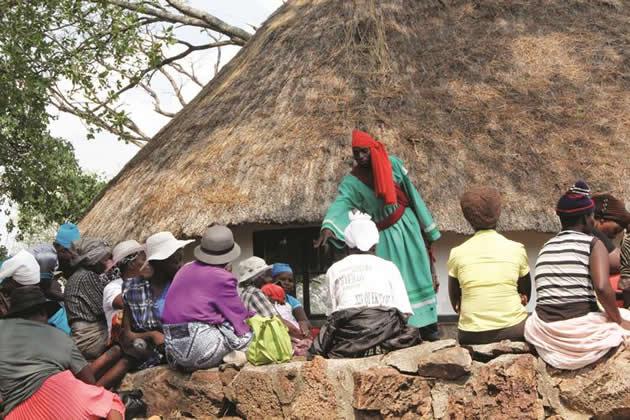News / National
Witch hunting is a criminal offence
20 Sep 2024 at 07:19hrs |
0 Views

In Zimbabwe, it is a criminal offense to accuse someone of witchcraft, a law designed to prevent social unrest and violence stemming from such accusations. Individuals found guilty of making these claims can face fines or imprisonment. Despite this legal framework, the practice of witch-hunting continues to pose a significant human rights challenge, often resulting in violence, discrimination, and even deaths, particularly among vulnerable groups like women, children, and the elderly.
Calls for reform or repeal of the law regarding witchcraft accusations have emerged, with critics arguing that it is outdated and does not reflect modern perspectives on traditional beliefs and practices. Nonetheless, witch-hunting remains a serious violation of human rights, undermining fundamental rights such as the right to life, security, and freedom from torture or inhumane treatment.
Communities must take proactive measures to combat witch-hunting through education and awareness initiatives, as well as strict enforcement of laws that protect individuals from such accusations. Governments and organizations have a vital role to play in promoting human rights education and addressing the root causes of these beliefs—such as poverty, superstition, and lack of access to education. Additionally, providing support and protection for those targeted by witch hunts is essential.
Ending witch-hunting demands a collective effort to challenge harmful stereotypes and practices, support victims, and foster a culture of respect and human dignity.
This week, social media buzzed with reports of witch hunters (tsikamutanda) in Luveve, Bulawayo, who were allegedly attempting to remove a goblin or witchcraft tools from a family's home. The operation ultimately failed, resulting in emotional distress and a loss of dignity for the family involved.
In other instances, families have been coerced into paying substantial sums or settling debts to witch hunters masquerading as prophets, often at the cost of their livestock. It is imperative to reiterate that witch-hunting is unlawful, and individuals are urged to refrain from engaging with those claiming supernatural powers for such purposes.
The fight against witch-hunting and the protection of human rights in Zimbabwe require concerted efforts from all sectors of society to foster a safe and just environment for everyone.
Calls for reform or repeal of the law regarding witchcraft accusations have emerged, with critics arguing that it is outdated and does not reflect modern perspectives on traditional beliefs and practices. Nonetheless, witch-hunting remains a serious violation of human rights, undermining fundamental rights such as the right to life, security, and freedom from torture or inhumane treatment.
Communities must take proactive measures to combat witch-hunting through education and awareness initiatives, as well as strict enforcement of laws that protect individuals from such accusations. Governments and organizations have a vital role to play in promoting human rights education and addressing the root causes of these beliefs—such as poverty, superstition, and lack of access to education. Additionally, providing support and protection for those targeted by witch hunts is essential.
This week, social media buzzed with reports of witch hunters (tsikamutanda) in Luveve, Bulawayo, who were allegedly attempting to remove a goblin or witchcraft tools from a family's home. The operation ultimately failed, resulting in emotional distress and a loss of dignity for the family involved.
In other instances, families have been coerced into paying substantial sums or settling debts to witch hunters masquerading as prophets, often at the cost of their livestock. It is imperative to reiterate that witch-hunting is unlawful, and individuals are urged to refrain from engaging with those claiming supernatural powers for such purposes.
The fight against witch-hunting and the protection of human rights in Zimbabwe require concerted efforts from all sectors of society to foster a safe and just environment for everyone.
Source - bmetro
Join the discussion
Loading comments…

























